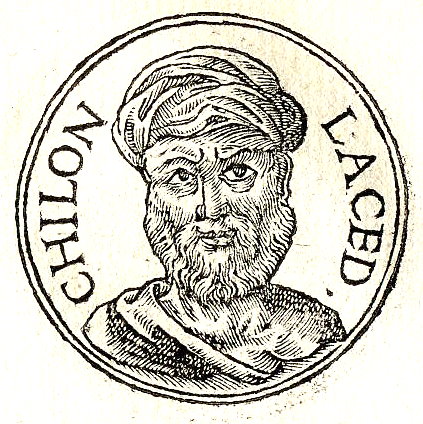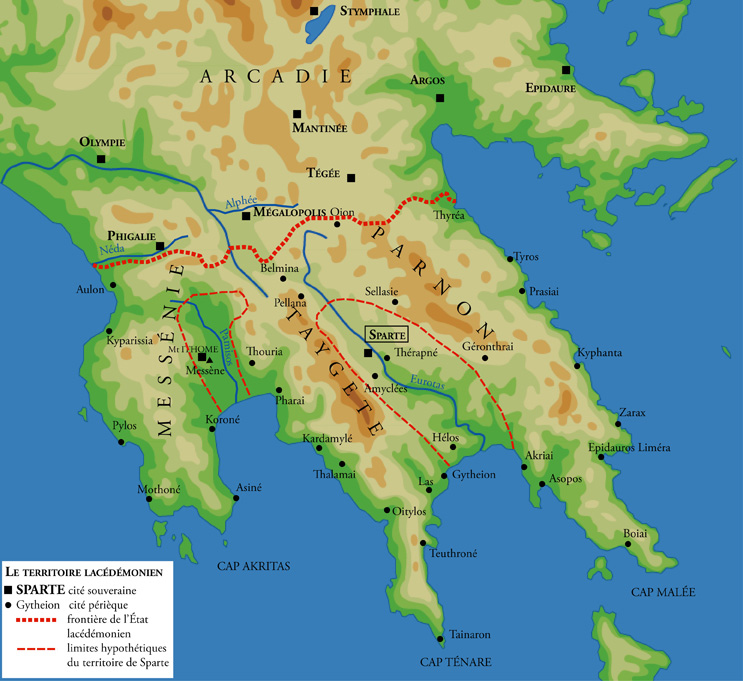Perhaps what we can learn from the life of Chilon of Sparta is that to live a virtuous life is to stay out of the tabloids; and to be barely noteworthy is to be considered virtuous. Very little is said of Chilon of Sparta except that he was a man of integrity; his actions aligned with his philosophies and judgments. But that is not the whole skinny on Chilon. In very few references it is made clear that Chilon did his lot to secure the relevance of Greek civilization, and kept his name out of it.
An initial internet search almost leaves one to believe that Chilon left little mark on history compared to his fellow sophists. Other than a mention of his impact on the governing role of the ephorate, most references seem to focus on his aphorisms. This approach may be influenced by Chilon’s lofty place as one of the seven sages. Indeed, while he may have been respected as a wise man, he only gained cult status after death. To the contrary, however, it may be due to the compromises of the ephorate and Chilon’s personal integrity in office that earned him a place as a very wise man. John Paul Adams noted that the ephorate were “very often men who (were) not at all well-off, (found) themselves holding this office, and their lack of means (made) them open to bribery. . . And just because the power of the ephors is excessive and dictatorial, even the Spartan kings have been forced to curry favor with them.”
Chilon proved himself astute by coalescing his ephorate “equals,” a term used to describe those who were not of royal lineage. And despite his adage, “do not make an extravagant marriage," Chilon was strategically connected to both of Sparta’s royal houses by marriage. Furthermore, as is often the case in making history, Chilon was in the right place at the right time. Up to a defeat by the Arcadians, Sparta’s frontier wars had a dominating strategy of annexation and enslavement which, as might be understood, generated a lot of unhappy constituents. It was Chilon’s moment to shine when he stepped in with a different strategy. “Subduing an immediate circle of hostile neighbors only creates a more distant circle of hostile neighbors,” he reasoned, “why not try diplomacy, it would be cheaper and more effective.” (Oxford Illustrated History of Greece and the Hellenistic World) Thus, he transformed the military prime directive with intellectual reason: "When strong, be merciful, if you would have the respect, not the fear, of your neighbors."
A wily politician, Chilon stepped up to resolve the friction of racial dichotomy arising from expansionism. Engaging the Greeks in a sleight of perception management he down-played the apparent superiority of the Dorian clan, who were hated by all other Greeks as illegals, by creating a lineage that unified all Greeks as Peloponnese subjects of Orestes, son of Agamemnon. The ruse worked, then instead of annexation Chilon negotiated strategic alliance. One can see from his approaches and the wisdom in his adages that Chilon was a most civilized, decent, and charitable man in most respects. His policies speak of unity and preservation of Greek culture, even in its most ambitious endeavors.
The passive reference to Chilon’s key contributions in those initial references is a boon to us. It gives DeepDish a chance to quell the preconception of philosophy as a Shakespearian “to be, or not to be” soliloquy. Philosophy is not solely about ambivalence, but also a reasoned, effective, both/and approach to practical solutions. But if you must find something...anything...to dim Chilon’s shine, like Solon‘s reputation as irreverent savoir-faire, or to poke fun at him as Thales contemporaries teased him as the impractical scholar, here’s one thing. One savvy blogger cited a reference to Chilon by his enemies him as “the Fartin’ Spartan.” Gut-busting, but somehow, the deliberate rhyme seems a more modern catch-phrase as I doubt it would have the same effect in Greek language. Thus it seems suspect.
What did seem a bit peculiar was this bit of advice “When speaking not to gesticulate with the hand; for that is like a madman.” Really? Or, "Do not use threats to anyone, for that is womanly." (*rolling eyes*) Was he a tad obsessive-compulsive like Adrian Monk, maybe? Could that have been the secret to his fastidiousness? Or was it part of an orientation to public service for the governing newcomers. Well, he certainly seemed to have quite a few “Thou shalts” and “Thou shalt nots” which apparently served him well. Get more of the maxims of the proper ephor at the Greek Mythology Link.
Afterword: Support your local libraries. Some of the best bits on Chilon came from digging in the reference shelves.
Other References:
The Rise of the Greeks. Michael Grant
Ancient Greece: A History of 11 Cities,. Paul Cartlege
Oxford Illustrated History of Greece and the Hellenistic World. Boardman, Griffin, & Murray

